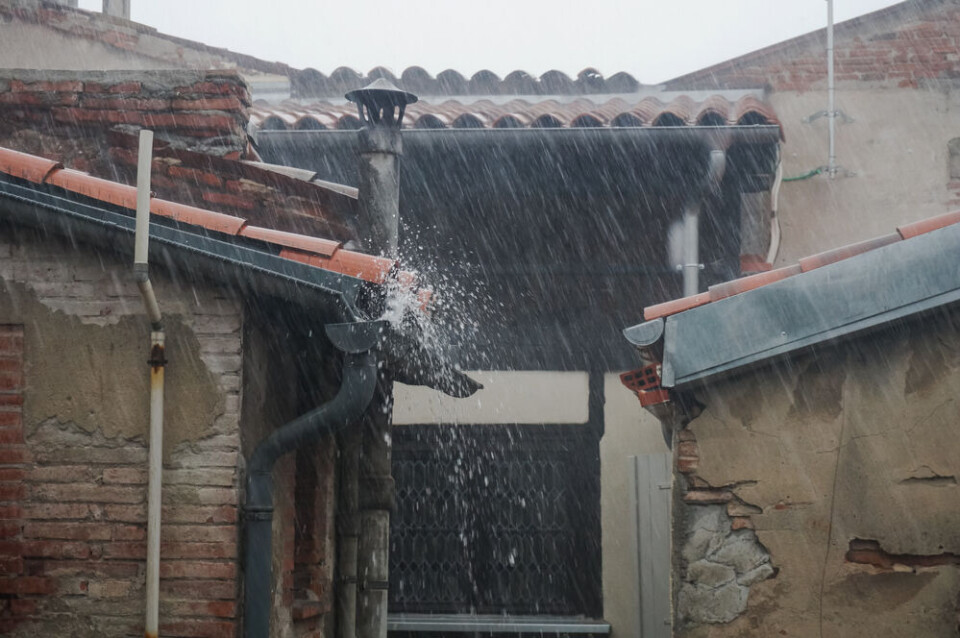-
Death of right-wing protester in Lyon sparks fears of further political violence
Quentin D, 23, died after reportedly being ambushed by far-left activists near site of political conference
-
Red flood alerts continue in south-west - and more heavy rain expected
Garonne river is particularly affected. French weekly weather forecast February 16 - 20
-
Car insurance fees set to rise - tips on how to make savings
Premiums are forecast to rise by four to six percent in 2026
Record rain refills water table in France but issues remain for 2024
As of December 1, rainfall had refilled almost half to ‘above-average’ levels for the season

Almost half the groundwater reserves in France have been refilled due to record rainfall, after significant drought conditions over the summer - but concerns still remain for water resources in 2024, warn experts.
As of December 1, rainfall had refilled almost half (48%) of the reserves to ‘above-average’ levels for the season.
Only those in the southern areas of Languedoc and Roussillon in Occitanie were still at lower levels than those seen in 2022, said the public groundwater table monitoring authority the Bureau de recherches géologiques et minières (BRGM) in a press release.
‘Best situation for three years’
“We haven't had such a favourable situation for almost three years,” said Violaine Bault, hydrogeologist at BRGM, during a video conference.
Winter is typically the season in which rainfall should refill the reserves, but drier-than-average years have led to critical situations in summer with many communes reporting considerable drought and a lack of drinking water over the hotter months.
Read more: ‘Very unsatisfactory’: Alarm raised over France’s groundwater levels
Read more: Water crisis declared in south of France as spring rain comes too late
The ‘recharge’ is usually expected to begin in September-October, but as of November 1 this year, 65% of the main underground drinking water reserves were still considered as “under the norm” for the season, and just 14% were considered to be in a “favourable situation”.
In 2022, the situation was worse, with 70% of reserves under the norm, and just 9% over.
However, the last weeks of November have helped considerably.
‘Record rainfall’
Weather forecaster Météo-France said that between mid-October and mid-November, France had record rainfall.
During these dates, there was an average cumulative rainfall of 237.3 millimetres, far above the previous winter record of 187.1 millimetres, which happened between January 13 and February 11, 1988, it said.
The BRGM said that there had been a “sharp reversal in trends” over the past month, and a significant improvement in the overall situation, with 20% of the nation’s reserves now even at "very high" levels.
It emphasised that 41% of reserves were still at “insufficient levels”, but that the situation was “much improved” in comparison to last month.
Minister for the Ecological Transition, Christophe Béchu, said that the improvement was reassuring but that there were still “a few critical areas” that needed work. He also called on everyone to continue in their efforts to reduce excess water use.
Read more: SEE: where water tables in France have refilled the most
Regional differences and deficit pressure
There are considerable regional differences in the situation, the BRGM said, as France had not seen the same rainfall everywhere.
Ms Bault also said that sometimes there can be a delay of as much as one to two months for the rainfall on the surface of the ground to trickle down into the underground water table reserves.
This means that “levels are very favourable in the reactive aquifers of the northern two-thirds and the south-west”, she said.
However, “levels remain below normal for the aquifers of Corsica, the Mediterranean region, the Limagne plain (Auvergne), the Rhône-Saône corridor, southern Alsace and the Paris Basin”. She added that the reserves in the Roussillon area are also particularly empty.
“It will have to continue to rain well to guarantee good [water] levels for next year,” warned Ms Bault, who also said that 2024 could still run into water shortage problems.
“There will probably be pressure on those already in deficit,” she said.
Related articles
This is how much rainfall France needs to end the drought
More ‘crisis’ level drought alerts in France, water reserves stay low
























